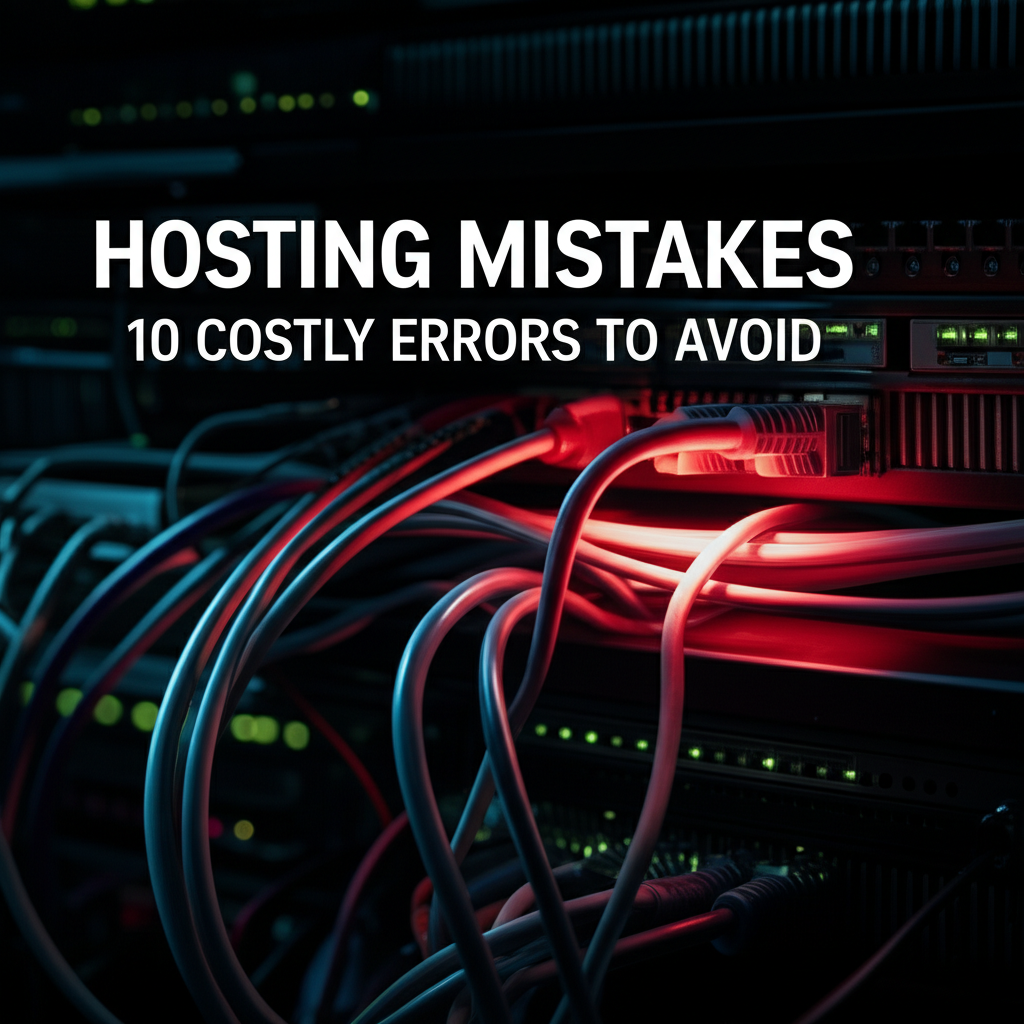- Common Hosting Mistakes: Choosing the Wrong Plan
- Underestimating Resource Requirements
- Neglecting Scalability
- Hosting Mistakes Related to Security
- Ignoring Security Updates
- Weak Passwords and Authentication
- Hosting Mistakes Impacting Performance
- Overlooking Content Delivery Networks (CDNs)
- Not Optimizing Your Website
- Other Critical Hosting Mistakes to Avoid
- Lack of Backups
- Poor Customer Support
- Not Reading the Fine Print
Hosting Mistakes: 10 Costly Errors to Avoid
Hosting mistakes can significantly impact your website’s performance, security, and ultimately, your bottom line. Choosing the right hosting environment and managing it effectively is crucial for online success. From selecting the wrong plan to neglecting security measures, seemingly small oversights can lead to significant problems down the road. This article outlines ten common hosting mistakes that can cost you dearly and provides actionable advice on how to avoid them.
Common Hosting Mistakes: Choosing the Wrong Plan

One of the most fundamental hosting mistakes is selecting an unsuitable hosting plan. Opting for the cheapest shared hosting plan might seem attractive initially, but it can quickly become a bottleneck as your website grows. Shared hosting environments often have limited resources, which can lead to slow loading times and poor performance, especially during traffic spikes. Understanding your website’s needs and anticipating future growth is essential for choosing the right plan from the start.
Underestimating Resource Requirements
Failing to accurately estimate your website’s resource needs – such as bandwidth, storage, and processing power – is a recipe for disaster. If your website requires more resources than your plan provides, you’ll experience slowdowns, downtime, and frustrated visitors. Analyze your website’s traffic, content, and anticipated growth to determine the appropriate resource allocation.
Neglecting Scalability
Another crucial aspect to consider is scalability. Your hosting environment should be able to adapt to your website’s changing needs. If you anticipate significant growth, opting for a scalable solution like cloud hosting or a virtual private server (VPS) is crucial. These options allow you to easily upgrade your resources as your website expands, avoiding performance issues and costly migrations down the line.
Hosting Mistakes Related to Security
Security is paramount in the online world, and neglecting it can have devastating consequences. From data breaches to malware infections, security lapses can damage your reputation, compromise sensitive information, and even lead to legal repercussions.
Ignoring Security Updates
Failing to keep your software updated is a major security risk. Outdated software often contains vulnerabilities that hackers can exploit. Ensure your operating system, content management system (CMS), plugins, and other software components are always up-to-date with the latest security patches.
Weak Passwords and Authentication
Using weak or easily guessable passwords is an open invitation for hackers. Implement strong, unique passwords for all your accounts and enable two-factor authentication whenever possible. This adds an extra layer of security, making it significantly harder for unauthorized access.
Hosting Mistakes Impacting Performance
Beyond choosing the wrong plan, several other hosting mistakes can negatively impact your website’s performance.
Overlooking Content Delivery Networks (CDNs)
A CDN is a network of servers distributed geographically that caches your website’s static content. Using a CDN can significantly improve your website’s loading speed, especially for users located far from your server. By serving content from a server closer to the visitor, you reduce latency and improve user experience.
Not Optimizing Your Website
Even with the best hosting plan, a poorly optimized website can still perform poorly. Optimizing images, minifying CSS and JavaScript files, and leveraging browser caching can significantly improve loading times and enhance user experience.
Other Critical Hosting Mistakes to Avoid
Beyond security and performance, there are a few other crucial hosting mistakes to be aware of:
Lack of Backups
Data loss can be catastrophic. Regular backups are essential for protecting your website’s data from hardware failures, accidental deletions, and security breaches. Ensure your hosting provider offers reliable backup solutions and regularly test your backups to ensure they are functioning correctly.
Poor Customer Support
When issues arise, reliable customer support is invaluable. Choosing a hosting provider with responsive and knowledgeable support can save you time, frustration, and potentially revenue. Before committing to a provider, research their customer support options and reputation.
Not Reading the Fine Print
Before signing up with a hosting provider, carefully review their terms of service and service level agreements (SLAs). Understanding the terms and conditions, including uptime guarantees, refund policies, and acceptable use policies, can prevent unpleasant surprises down the line. Knowing what to expect and what your rights are is crucial for a positive hosting experience.
By avoiding these common hosting mistakes, you can ensure your website performs optimally, remains secure, and provides a positive experience for your visitors. Choosing the right hosting plan, prioritizing security, optimizing performance, and being prepared for the unexpected are all essential steps for online success.











Leave a Reply